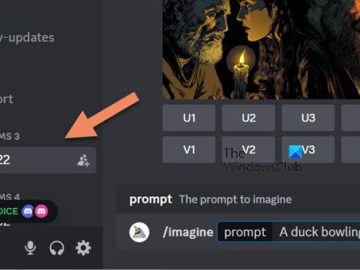SAN ANTONIO – This is the first major election of the generative artificial intelligence (AI) era, and we’re already seeing its impact.
But is this technology helping or harming our elections? Experts say the answer is both.
Texas experts say the threat of AI interfering in our physical election systems is very low. What it could interfere with is your decision-making.
One of the big threats is deepfakes. That’s content that looks realistic and tries to influence where, how, and when you vote.
Sometimes, the content is obviously fake.
This generated video of Vice President Kamala Harris and Former President Donald Trump walking on a beach is one example.
The faces are a bit contorted, the movements aren’t seamless, and everything looks airbrushed.
This video was shared by user @dominictsz on X back in August.
The Republican National Committee also launched an ad last year depicting what they described as “an AI-generated look into the country’s possible future if Joe Biden is re-elected in 2024.”
It’s an apocalyptic clip, showing images of city streets, the border, and law enforcement officers in situations that don’t exist. In the corner, the ad reads “built entirely with AI imagery.”
But other ads make the AI harder to spot.
Thousands of people, including Elon Musk, shared an X video from @MrReaganUSA. The creator describes it as a parody.
You hear Harris’ voice saying things she didn’t really say, placed alongside photos and videos of her.
It still raises eyebrows, but the manipulation isn’t as apparent.
The goal of those more realistic videos is to trick you.
“To create chaos, to create doubt about the election, to basically sow distrust of Americans in their electoral process and in government,” said Jon Taylor, the Chair of Political Science and Geography at UTSA.
And the videos aren’t tough to create.
We created an AI version of investigative reporter Jordan Elder in about 15 minutes.
The platform was free and did have measures in place to ensure people couldn’t use it to make deepfakes of others.
It was very accurate, mirroring Elder’s mannerisms and voice, but it wasn’t perfect. The audio didn’t match up completely and the AI version of Elder’s voice lacked emphasis.
But experts say, with time, companies will smooth out those hiccups, and AI videos will be much harder to spot.
We’re seeing deepfakes used in politics at the national level, but also here in Texas races.
Back in April, a mailer went out showing Texas House Speaker Dade Phelan hugging former U.S. House Speaker Nancy Pelosi.
That never happened though. Phelan’s face appears to be placed over new House Democratic Leader Hakeem Jeffries.
In a post on X, Phelan says it’s a “deep fake photograph.”
“We’ve had a deepfake law on the books since 2019,” political attorney Andrew Cates said. “But it’s already behind.”
Texas was actually the first state to criminalize some deepfakes in 2019.
You could get a year in a county jail and up to a $4,000 fine, but only if they’re videos, and only in the 30 days before an election.
“Is that enough time to make a difference especially because the technology is more advanced now?” Elder asked.
“Absolutely not,” Cates said. “The threat of these deepfakes doesn’t stop at 30 days out. It just doesn’t.”
So, for that AI photo of Speaker Phelan…
“It was technically legal,” Taylor said.
In an April hearing, lawmakers said it might be time for an update.
“The reason why it should be against the law is not because it hurts our feelings as elected officials, right?” said House Select Committee on Artificial Intelligence and Emerging Technologies Chair Giovanni Capriglione, R-Southlake. “We get that all the time, but it’s because it’s intentionally meant to deceive the voter.”
The other risk with deepfakes? Election trust.
Experts say bad actors could target election officials, altering media meant to sow distrust in voters.
The Department of Homeland Security came out with guidance recommending that all election officials prepare for this.
Taylor says Arizona election officials have been planning for any attempts like this for months.
We asked Bexar County Elections Administrator Jacque Callanen if her office is preparing for any potential AI-interference or deepfakes.
“We’ve obviously instructed all of our election officials, but we’re watching it the same as you are,” Callanen said.
But experts tell us, the AI era may not be all bad for elections.
“It could have a profound impact in the way that we do campaigns, elections, campaigning, in general, advertisements and lobbying,” Taylor said.
The I-Team will show you some of the ways it’s already being used to save time and money on the campaign side, and some of the questions surrounding its ethics, on Thursday.




